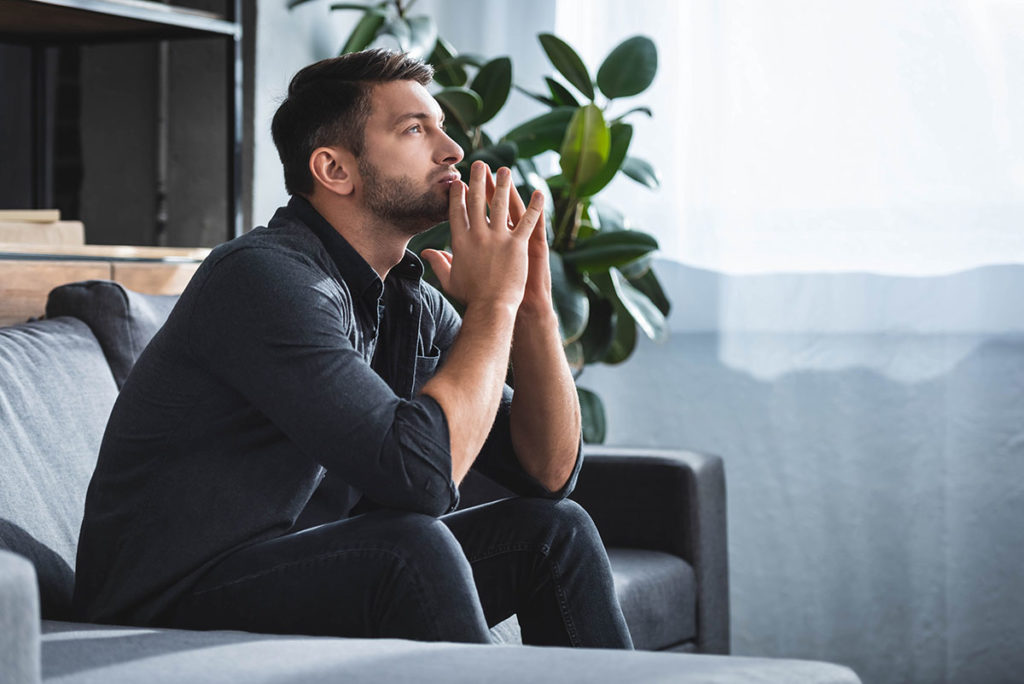Anxiety is a common emotion experienced by everyone. It can range from mild to severe, and different types of anxiety affect everyone differently. Understanding the different kinds of anxiety and their associated symptoms is essential in recognizing when you may be struggling with your own experience with anxiety.
At Northpoint Omaha, we understand that dealing with anxiety can be very difficult, especially if you are unsure what these feelings mean. Our team is committed to helping our patients identify the root cause of their anxiety and develop coping mechanisms to manage it better. In our anxiety treatment programs, we offer individual counseling sessions where therapists will work collaboratively with each patient to create personalized treatment plans to improve the overall quality of life and reduce stress levels. For more information, contact our team of experts today at 888.687.8014.
What Are the Different Types of Anxiety?
There are many types of anxiety, each with its own symptoms and causes. Some of the more common types of anxiety include:
Generalized anxiety disorder (GAD)
People with GAD experience chronic and excessive worry and tension, even when there is little or nothing to provoke it. GAD can interfere with daily activities such as work, school, and relationships.
Social anxiety disorder (SAD)
Also known as social phobia, SAD is a type of anxiety that involves intense fear and self-consciousness in social situations. People with SAD may avoid social interactions altogether or endure them while feeling severe anxiety and discomfort.
Panic disorder
Panic disorder is characterized by recurrent panic attacks, or sudden episodes of intense fear that can occur without warning or apparent trigger. Panic attacks typically include physical symptoms like accelerated heart rate, sweating, trembling, and shortness of breath. During a panic attack, people may feel like they are going to die or lose control of themselves.
Obsessive-compulsive disorder (OCD)
OCD is characterized by obsessions (recurrent, intrusive thoughts) and compulsions (repetitive behaviors or mental acts that a person feels compelled to do to ease their anxiety). People with OCD often have very specific rituals that they perform in an attempt to ward off their obsessions or prevent something bad from happening. For example, a person with OCD who fears germs may wash their hands excessively or avoid touching door handles altogether.
Causes of Anxiety
Common causes of anxiety include:
- Stress due to changes in life or significant events
- Physical or emotional trauma
- Genetic predisposition
- Imbalances in the chemicals in the brain
Stress is one of the most common causes of GAD and other types of anxiety. Everyday life can bring a lot of different kinds of stress with different intensity and duration levels. This type of stress could be related to money, family or relationship problems, work, school, or any other kind of pressure. Significant events such as moving house or starting a new job can also cause an increase in stress levels which can lead to different types of anxiety.
Trauma is another potential cause for certain types of anxiety disorders. For example, post-traumatic stress disorder, or PTSD, often follows an individual’s experience with a traumatic event. This type of trauma can cause changes in brain chemistry, contributing to the development of different mental health issues, including various types of anxiety disorders.
In many cases, an imbalance between neurotransmitters such as serotonin and GABA impacts our moods and emotions and regulates how we process fear and other emotions. Neurotransmitter imbalance can sometimes occur due to lifestyle changes such as increased stress levels or drinking too much alcohol, making us feel anxious or stressed out for no apparent reason.
Physical Symptoms of Anxiety
Anxiety can manifest through physical symptoms such as sweating, trembling, or difficulty breathing. Anxiety may manifest as persistent and intrusive thoughts or an overwhelming sense of dread for others. And still, for others, anxiety may manifest as behavioral changes like avoidance of certain situations or people.
Overall, the main symptom of anxiety include the following:
- Rapid heartbeat
- Shortness of breath
- Sweating
- Trembling or shaking
- Chest pain or tightness
- Dizziness or feeling faint
- Upset stomach, nausea, and diarrhea
- Difficulty concentrating, thinking clearly, remembering details
- Insomnia
- Irritability
While every person’s experience with anxiety is different, the above could be signs of anxiety.
Learning Manage Anxiety Symptoms With Northpoint Omaha
In conclusion, different types of anxiety can affect people in different ways. Depending on the cause of your anxiety, you may need to undergo a specific type of treatment that fits your unique need. For more information on our anxiety treatment programs, contact our team of experts today at 888.687.8014.

